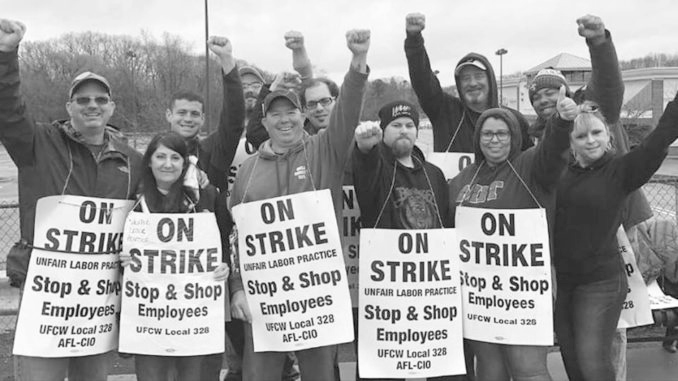Working people fed up with low wages, high rent, and other injustices take note: You are not alone in your frustration. As the crisis of the global capitalist system continues, workers and op-pressed communities suffer. The upside is that more workers are fighting back by joining unions and going on strike.
This was becoming evident as even mainstream news outlets like CNN had to cover the incredible teacher strike wave of 2018, which has spilled over into 2019. Labor organizing among Amazon, USPS, and other workers also broke through into mass consciousness.
But now the U.S. Bureau of Labor Statistics (the official federal agency that studies these things) has confirmed that the increase in labor activity is real.
According to a bureau news release on Feb. 8, there were at least 20 major work stoppages involving 485,000 workers in 2018. This is the biggest increase in the number of U.S. workers involved in work stoppages since 1986, when 533,000 workers engaged in strikes or walkouts. And this is the largest increase in the number of major work stoppages since 2007, a year that saw 21 such stop-pages, according to the bureau.
Ninety percent of striking workers in 2018 are in education, healthcare, or social assistance (e.g., childcare), fields not usually associated with militant labor activity. Strikes also occurred in many states often described as “conservative,” such as West Virginia and Kentucky. The longest major stoppage in 2018 involved the National Grid and United Steelworkers, began on June 25 and was on-going through 2018.
One aspect not covered by the bureau’s news release is the degree to which the strikes have been effective. The strike upturn is notable not only because of the number of workers involved, or the number of stoppages. It is also impressive that striking workers in 2018 tended to stick to their guns to the end, bosses to make concessions. Most of the big strikes that made the news resulted into new contracts, higher wages, and other gains.

